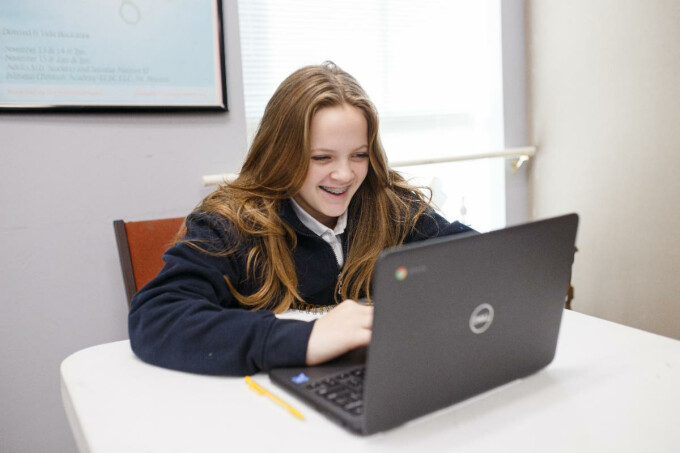Exploding "Volcanoes" Bring Shrieks Of Surprise

The Scientific Method can be seen in action all over PCA’s campus this month!
Last week Mrs. Rhodes took her second grade class on an adventure to explore what makes up the Earth, without even having to leave their desks.
“We followed the steps of the scientific method to discover what happens when a gas builds up in a closed space like a volcano,” explained Rhodes. “We turned our desks into mini science labs where we set up our equipment. Each student wore safety goggles which protected their eyes, and even more protected their hearts as we saw the lesson through God's lens of truth.”
Each student filled a brightly colored plastic tube with two droppers of water, before carefully adding a half of an Alka Seltzer tablet. Quickly, the students capped the tube and began to energetically give it a shake! Waiting for the reaction they knew would come, students hurriedly took a step back and within seconds they watched as their tubes launched into the air! This immediately brought squeals of surprise and delight as you'll see in the video below.
“We realized gas build-ups are explosively dangerous, as rocks and lava blast into the air from a volcano,” recalled Rhodes. In studying science and the Bible, Mrs. Rhodes' students discovered that the Earth's surface has become dangerous since the Fall but scientists can help people understand the dangers and prepare them for natural disasters.
From floating M’s last week to exploring the earth this week, students at PCA are building on their scientific knowledge and skills all around campus.

